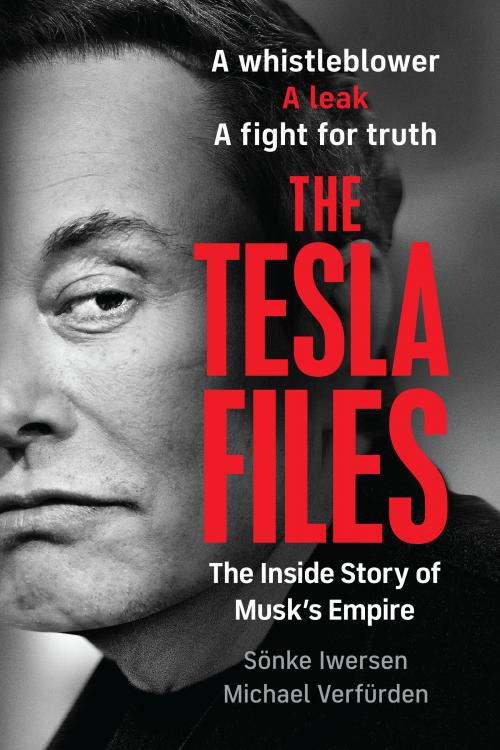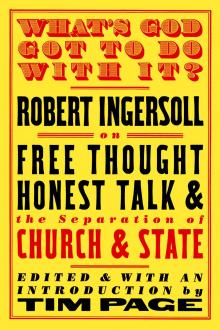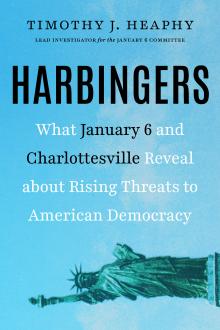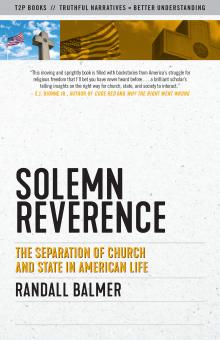Excerpt
preface
Trapped in Elon’s Game
April 21, 2025
If Elon Musk had his way, this book wouldn’t exist. When we sent him our questions about the Tesla Files in May 2023, the reply came straight from his legal department. We weren’t allowed to have these files, a Tesla lawyer informed us, demanding their deletion. Tesla announced legal action, stating: ‘As you know, use of illegally obtained data for media reporting is not allowed absent exceptional circumstances.’
Perfect, we thought – exceptional circumstances are a given. The world’s richest man, the most valuable car manufacturer, the largest private space company – the story of Elon Musk is an endless chain of superlatives. It couldn’t possibly be more exceptional.
For a long time, we never imagined belonging to a very small circle of journalists demystifying Tesla and, particularly, Elon Musk. Then, the whistleblower Lukasz Krupski contacted us.
His call turned Musk into the center of our lives, a constant presence. Since then, we have been exchanging countless messages about him, checking the latest news on Musk and Tesla early in the morning and late at night. When our alarms go off, our smartphone screens are already filled with his overnight posts on his platform, X. We sometimes asked ourselves how he still finds the time to run his companies between hours of video-gaming and his fight against what he calls the ‘woke virus.’
On October 25, 2024, Musk casually uploads a video on X showing himself playing Diablo, an online role-playing game. In the background, a SpaceX team briefs him about issues with an orbital test flight. ‘I want to be really up-front about scary shit that happened,’ says an engineer. ‘We had a misconfigured spin-gas abort that didn’t have quite the right ramp-up time for bringing up spin pressure. And we were one second away from that tripping and telling the rocket to abort and try to crash into the ground next to the tower.’
Musk, who has security clearance due to his cooperation with the U.S. government, continues slashing skeletons with unnerving calm, replying without pausing his game: ‘Wow, yikes!’
This near-catastrophe and Musk’s relaxed approach to it barely gets any coverage. In the fall of 2024, Musk generates headlines at such a furious pace that journalists can hardly keep up. He produces news incessantly – news no other CEO could possibly survive.
All of a sudden, Musk has stepped into politics, not just as a donor, but as a contender. When we began our research for the Tesla Files, we thought the global public’s interest in Musk had peaked. Now Musk – the protagonist of this book – has become involved in an unprecedented
U.S. presidential campaign.
On the one hand, we welcomed this development – journalists would call it reporter’s luck. On the other hand, we are not just reporters, but also citizens. Imagining Musk as a political decision-maker makes our skin crawl. The man is locked in an ongoing feud with regulatory agencies, but is now on track to lead the Department of Government Efficiency, an anti-bureaucratic bureaucracy. Donald Trump has suggested that this appointment is the modern-day equivalent of the Manhattan Project – the secret U.S. research program during World War II that led to the creation of the atomic bomb. It culminated on August 6, 1945, in Hiroshima, with a deadly demonstration of power that changed the world forever.
Today, the enemy isn’t the alliance of Nazi Germany and Imperial Japan. Now, the enemy is anyone who thinks differently from Musk. Employees, business partners, and family members describe him as prone to outbursts of rage. His paranoid fears and conspiracy theories are blasted to millions via X, his own social media empire. The cost of his greed for success and recognition is paid, above all, by his employees. We’ve studied Musk’s philosophy – his habit of minimizing present-day risks in favor of whatever the future might hold. In his world, the end justifies the means.
If the future looks revolutionary, today’s damage is negotiable.
Even dropping an atomic bomb could be justified.
At times, while writing, we’ve felt that Musk approaches life as if it were a video game – with himself as the main character and everyone else merely extras. A game obsessed with becoming faster, better, stronger, where losses don’t matter because progressing to the next level forgives everything – as long as you win. This book serves as a reminder that, in life, there are no automatic save-points. Levels can’t be repeated indefinitely. And some mistakes can’t be undone.
That we were able to write it, we owe to many people – first and foremost Lukasz Krupski. The trust this whistleblower placed in us was a rare gift. It took extra- ordinary courage to stand up to a hyper-rich, aggressive, and lawsuit-happy Elon Musk. Krupski has paid the price. His life has been stuck in a Tesla loop since 2019. And yet, he helped us tell this story.
Many others followed his lead. This book is built on the experiences, accounts, and information of numerous people who spoke to us directly and gave us access to internal matters. Every single one of them helped shed light on the Musk system. Many took on significant personal and legal risks. Some relived the worst moments of their lives for us. This book has its origins in our first major exposé, in the German business newspaper Handelsblatt in May 2023, and the many articles that followed. But we wanted more for this project. Not only did we dig even deeper into the Tesla Files, uncover connections, build new relationships and bring to light secrets that had remained hidden, we also we wanted to take our readers behind the scenes of journalism itself. This book doesn’t just show what’s happening at Tesla – it also tells the story behind the story. It reveals the challenges of an investigation like this one: the confidential editorial meetings, the pressure, the push and pull. We want to show what it’s like for reporters to swing between excitement and doubt – always aware that on the other side stands the richest man in the world.
For both of us, it’s the first time we’ve written not just about our subjects and other people, but about ourselves, too. At Handelsblatt, journalists are taught from day one to take a step back from their own story. Shifting perspective – reflecting on our own work and our own role – was a challenge.
We regret to say we have no comment from Tesla or Musk to offer. Neither the company nor its major shareholder and CEO responded to our questions.
chapter 1
An Anonymous Caller
This particular Friday starts off gently enough. A conference has been canceled, and we recorded today’s planned episode of the Handelsblatt Crime podcast yesterday. But the calm is shattered when a Microsoft Teams call pops up on my [Sönke Iwersen’s] desktop.
Odd. The photo in the window shows Martin Kölling, our correspondent in Tokyo. I haven’t spoken to him in months. What could he be calling about?
Martin gets straight to the point: A stranger called, claiming to work for Tesla in Norway – and warning of serious problems inside the company. Would I be willing to speak with the anonymous caller?
Of course I would. I’m not a car fanatic, but few companies in the world have the kind of magnetic appeal Tesla does. When Herbert Diess was still CEO of the German car giant Volkswagen, he once invited Elon Musk to speak in front of two hundred top executives. I can’t recall any comparable case in which a corporate leader so willingly threw himself at the feet of a competitor. Diess was practically enamored with Musk. Tesla, he said, worked faster, was more innovative, manufactured more cheaply – in short: it was simply better.
These days, Musk is practically the pop star of the global economy. A genius who founded his first company in his early twenties and was worth over $100 million ten years later.
What hasn’t been written about Musk? How work- obsessed he is. How unpretentious. That he doesn’t own a house and sleeps on friends’ couches – or simply on the floor of one of his factories. That he plays by no rules. Since buying the short-messaging platform Twitter, Musk has been in the headlines constantly.
I would have loved to meet him at some point, but for German journalists that was virtually impossible at the time. We hadn’t even managed to establish contact inside his German plant.
Today is November 4, 2022. For eight months now, Tesla has been building cars in Grünheide, near Berlin. It’s Musk’s only factory in Europe, and according to the com- pany, the most advanced in the world. The building permit was rushed through in an expedited process. Prospective employees had to sign confidentiality agreements during their interviews. No one is talking to outsiders. The company is a black box.
And now, out of the blue, an insider comes forward. I’m skeptical. I’ve been leading the investigative team at Handelsblatt for ten years now. Again and again, people have approached me promising incredible scoops. On closer inspection, most of these supposed whistleblowers turned out to be pursuing their own agendas. Often, all sense of proportion goes out the window. A bank allegedly miscalculates a loan? A banking scandal. An insurance company refuses to reimburse a specific expense? An insurance scandal. Lose a court case? A justice scandal! There’s no limit to how far personal grievances can be inflated.
And yet, I’ve learned this in my work: never turn anyone away. Always listen. In journalism, the most unlikely tips can turn into real stories.
In 2011, I heard a wild story involving Ergo Insurance, then widely known because of its massive marketing campaign. Independent agents from Hamburg-Mannheimer, a subsidiary of Ergo, came to tell me about a dispute with their employer. They were mainly fighting over severance packages for their many years of service. As I later learned, the men had already tried offering their story to other media outlets but without success. I wasn’t all that enthusiastic either – until one of them mentioned, in passing, an event in Budapest ‘that Ergo definitely wouldn’t want made public.’
Suddenly, I was intrigued. The men exchanged odd glances – it seemed the Budapest topic hadn’t been agreed on beforehand. I didn’t let it go, and after a while I had pieced the story together. Hamburg-Mannheimer had announced a competition and invited its top agents on a pleasure trip to Budapest – a meticulously organized open- air orgy in the historic Gellért Baths.
The organizers had hired hostesses and prostitutes, marking them with color-coded wristbands, and stamped the women’s forearms after each sexual service, for billing purposes. In the internal magazine for the sales team, the trip was praised as ‘legendary’ and ‘a hell of a lot of fun.’
When Handelsblatt printed my article, it sent a shockwave through the entire industry. The trip caught the attention of police and prosecutors, was picked up by media outlets around the world, and in 2014 was even featured in Shame less? Changing Sexual Morality Through the Ages, an exhibition at the House of History in Bonn, Germany’s former capital.
Since then, it has become customary at Handelsblatt for ‘special’ stories to land on my desk – or for special callers to be forwarded to my number.
As I write these lines, it’s happening again. I’ve taken the day off to work on this book. The phone rings. It’s a number from the United States.
At first, I think: waste of time. The caller is complaining about an article that just went live on the Handelsblatt website, about a Munich art gallery that has filed for insolvency. The woman wanted to speak to the author. But he’s a freelancer and doesn’t have an office number here. So the receptionist has simply patched her through to me. After a few minutes, I realize this might be worth it.
The caller is an American art collector who’s been in a months-long dispute with the gallery. She feels deceived – defrauded, even. The woman is elderly and tends to ramble. The conversation goes in circles until she suddenly mentions that she flat-out told the gallery owner she was a fraud. The owner buckled and supposedly admitted that her father had embezzled money from clients. Now, she doesn’t know what to do.
I think it over. It’s Friday afternoon. Maybe we could still reach a spokesperson at the public prosecutor’s office today. On the other hand, it might be better to first find a few more customers who also had problems with the gallery. An investigation begins…





